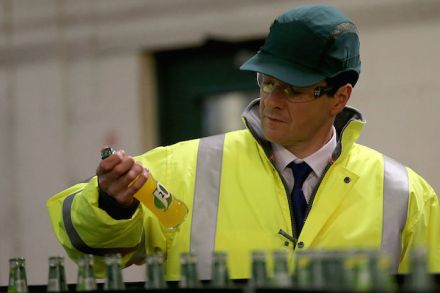Guy Verhofstadt is playing politics with his ‘special arrangement’ offer to Brits
Guy Verhofstadt thinks Brexit is a ‘disaster’, a ‘tragedy’ and a ‘catastrophe’. That verdict, from the European Parliament’s chief Brexit negotiator, won’t surprise many. But Verhofstadt has a solution to what he sees as a looming crisis for despairing Remain voters. During his interview on the Today programme this morning, he brought up the prospect of British citizens being allowed to keep their EU benefits as part of a ‘special arrangement’. This isn’t the first time we’ve heard this pitch from Verhofstadt. Back in November, the Belgian touted the idea that Brits could pay a fee to retain free movement and a vote in EU elections. ‘Many say ‘we don’t want to




















